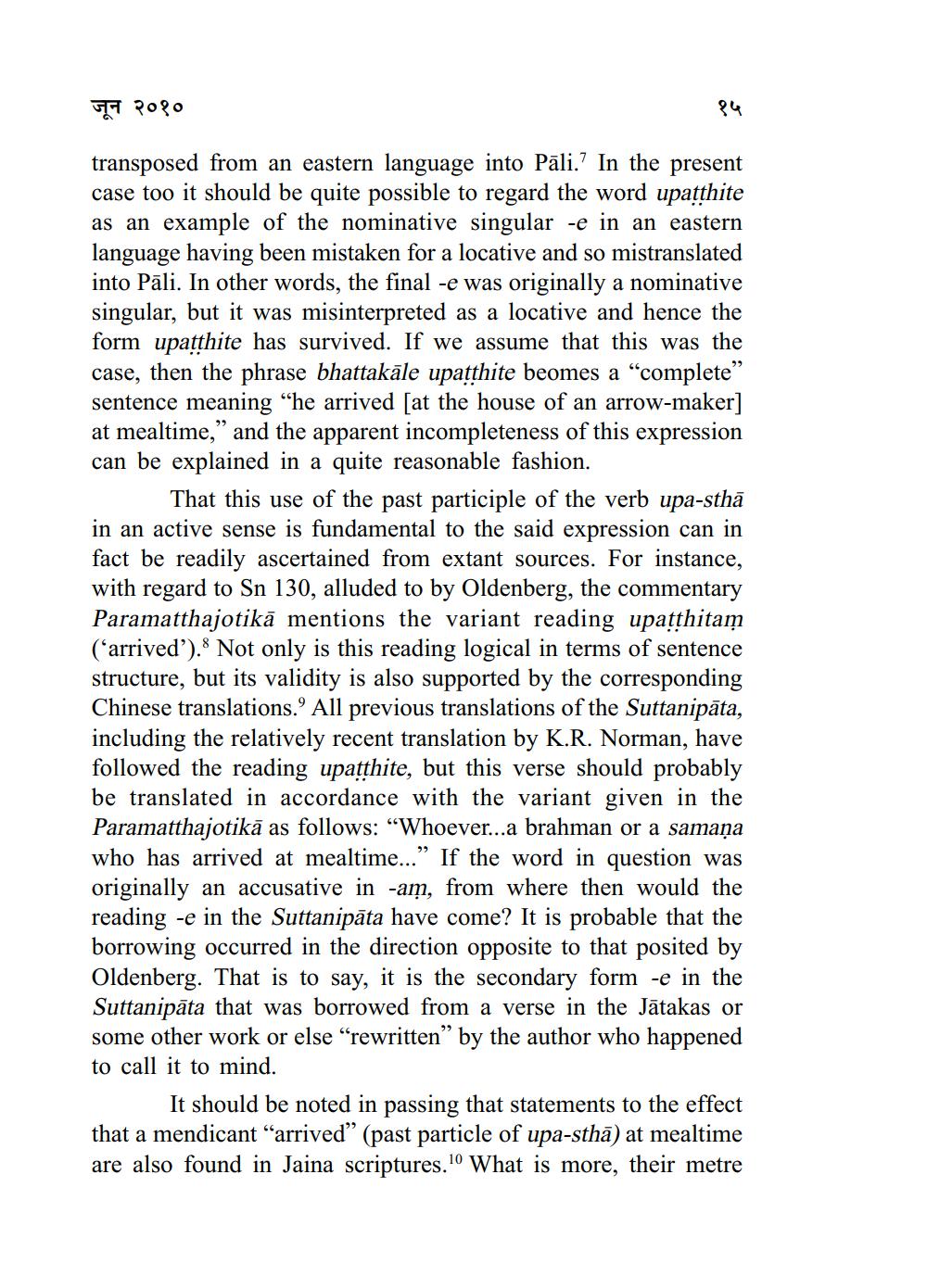Book Title: Bhattkale Upatthite Example of a Mistranslation in Pali Canon Author(s): Yajima Michihiko Publisher: ZZ_Anusandhan View full book textPage 4
________________ जून २०१० transposed from an eastern language into Pāli.? In the present case too it should be quite possible to regard the word upatthite as an example of the nominative singular -e in an eastern language having been mistaken for a locative and so mistranslated into Pāli. In other words, the final -e was originally a nominative singular, but it was misinterpreted as a locative and hence the form upatthite has survived. If we assume that this was the case, then the phrase bhattakāle upatthite beomes a “complete” sentence meaning "he arrived at the house of an arrow-maker] at mealtime," and the apparent incompleteness of this expression can be explained in a quite reasonable fashion. That this use of the past participle of the verb upa-sthā in an active sense is fundamental to the said expression can in fact be readily ascertained from extant sources. For instance, with regard to Sn 130, alluded to by Oldenberg, the commentary Paramatthajotikā mentions the variant reading upatthitam (“arrived'). Not only is this reading logical in terms of sentence structure, but its validity is also supported by the corresponding Chinese translations. All previous translations of the Suttanipāta, including the relatively recent translation by K.R. Norman, have followed the reading upatthite, but this verse should probably be translated in accordance with the variant given in the Paramatthajotikā as follows: “Whoever...a brahman or a samaņa who has arrived at mealtime...” If the word in question was originally an accusative in -am, from where then would the reading -e in the Suttanipāta have come? It is probable that the borrowing occurred in the direction opposite to that posited by Oldenberg. That is to say, it is the secondary form -e in the Suttanipāta that was borrowed from a verse in the Jātakas or some other work or else “rewritten” by the author who happened to call it to mind. It should be noted in passing that statements to the effect that a mendicant “arrived” (past particle of upa-sthā) at mealtime are also found in Jaina scriptures.10 What is more, their metrePage Navigation
1 2 3 4 5 6 7 8 9 10 11 12
